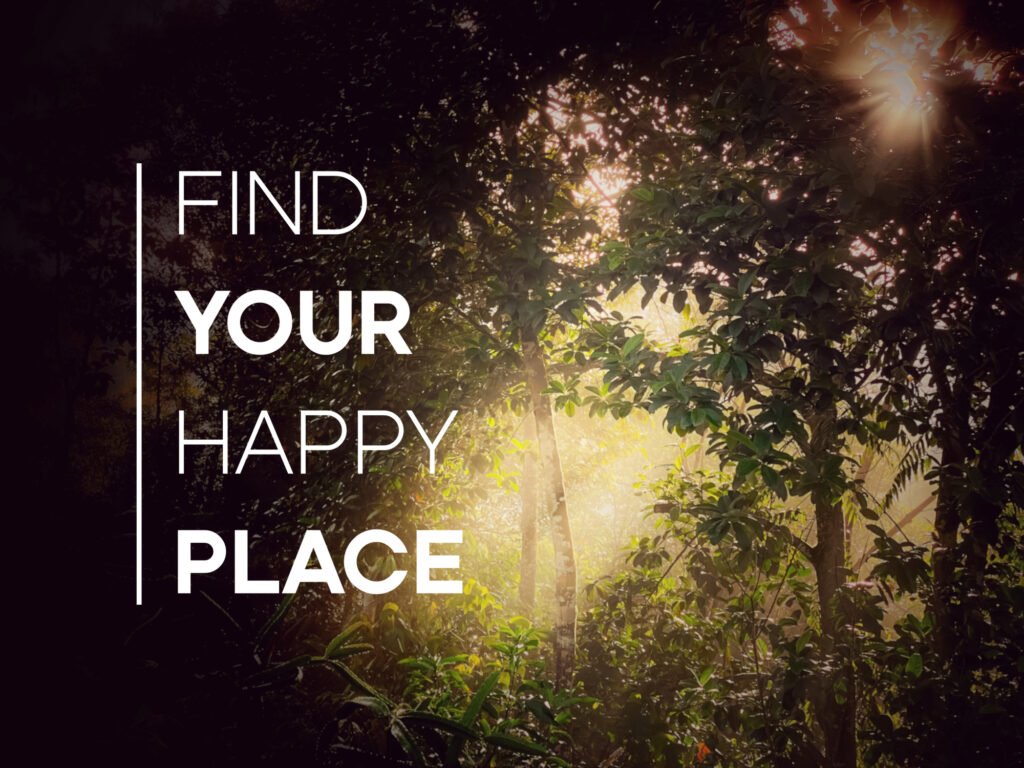Is happiness a choice? This question sparks a lot of debate.
In this article, we’ll look at both sides.
Some folks say you can choose to be happy no matter what’s going on around you. They believe if you change your thoughts and actions on purpose, you can boost your mood.
Others disagree. They point out that happiness isn’t so simple. Your genes, where you live, and surprise life events all play a big role in how you feel. And often, you can’t control these things.
What do you think? Does one side make more sense to you, or is the truth somewhere in the middle?

Let’s dive deeper into this happiness debate.
People who say happiness is a choice talk about things like being gratitude, staying present, and thinking positively. They believe these practices can boost your mood.
But not everyone buys that.
Some folks point out that big societal problems and mental health issues can make it really hard to just “choose” to be happy. They think saying happiness is simply a choice oversimplifies how complex human emotions really are.
So, is happiness a choice? Well, that depends on what happiness means to you. Everyone’s definition is different. Plus, there are tons of things that affect how we feel – from our biology to the world.
It’s a tough question to answer for sure. Happiness isn’t one-size-fits-all, and there are so many moving parts.
Let’s break down this happiness thing a bit more.
Different fields of study see it differently. And getting to that happy place might take both changing your thoughts and your actions.
Ready to explore the different sides of happiness? There’s a lot to unpack here.
Conceptualizing Happiness
What is happiness? It’s more than just feeling good at the moment. True happiness runs deeper, giving us a sense of contentment and satisfaction with our lives.
Psychology Today puts it well: happiness blends pleasure and purpose. This mix helps us enjoy the present while feeling in sync with our life goals.
Happiness blends pleasure and purpose.
Psychology Today
When psychologists study happiness, they don’t just focus on fixing problems. Instead, they look at what makes people mentally healthy and fulfilled. We all juggle positive and negative emotions, and how we balance these shapes our overall happiness.
Verywell Mind breaks happiness down into two main parts: balancing our emotions and feeling satisfied with life. Happiness isn’t just about those moments when we’re jumping for joy. It’s more about an ongoing feeling that life is good.
Happiness in Philosophical Thought
Philosophy takes a more nuanced look at happiness. Happiness goes beyond the question – is it a choice?
Philosophical views on happiness involve the examination of virtues, the meaning of life, and the end goals or the ‘good life.’

From ancient philosophers like Aristotle to contemporary thinkers, happiness is linked to ethics and the human condition. It’s a state that not only reflects one’s immediate feelings but also one’s existential place in the world.
The Role of Choice in Happiness
The concept that individuals can actively choose happiness and the ways cultural backgrounds inform these choices makes up a significant inquiry in understanding happiness.
Personal Agency and Decision Making
You have more control over your happiness than you might think. It’s all about the choices you make. When you decide to think and act in ways that boost your happiness, you can really improve how you feel.
Take being kind to others, for example. When you help someone out, your brain releases feel-good chemicals like serotonin and endorphins. This creates what’s called a “helper’s high,” leaving you feeling pretty great about yourself.
Culture’s Role in Happiness
But here’s the thing: your culture plays a big role in how you pursue happiness. Different societies have different ideas about what makes life good.
In some places, it’s all about community and making sure everyone’s doing well. In others, personal success is the key to happiness.
These cultural differences shape how people understand happiness and what they do to find it. So, there’s no one-size-fits-all definition of happiness–it’s more like a cultural mosaic.
What do you think? Does this match up with how you see happiness in your own life or culture?
“Happiness is when what you think, what you say, and what you do are in harmony.”
—Mahatma Gandhi
Determinants of Happiness
Ever wonder why some people seem happier than others? Let’s dig into what actually shapes our happiness. It’s not just one thing – it’s a mix of different factors.
Our genes play a role, but so does our bank account. And it’s not just about what’s happening inside us – the world matters too.
Think of it like a happiness recipe. Everyone’s ingredients are different. We’ve got:
- Our biological makeup
- How much money we have and our social status
- Things that happen to us (the external stuff)
- How we think and feel (the internal stuff)
All these ingredients blend to create our unique happiness level.
Curious about which of these factors might influence your own happiness the most?
Biological Factors
Your genes play a big part in how happy you feel – they’re responsible for about half the differences we see in people’s happiness levels. On top of that, brain chemicals called neurotransmitters have a lot to say about your mood.
Take serotonin, for example. People who have more of this chemical floating around in their brains felt more upbeat and positive.
So while you can’t control your genetic makeup or completely change your brain chemistry, understanding these factors can help you better grasp why you feel the way you do.
Moreover, the presence of certain neurotransmitters, like serotonin, plays a significant role in mood regulation. Individuals with higher serotonin levels exhibit more positive moods and emotions.
Socio-Economic Influences
Money matters. People who earn more say they’re happier. But it’s not just about cash in your pocket.
Having the freedom to make your own choices in life and surrounding yourself with supportive friends and family can really boost your mood.
Studies back this up – they show that people who steer their own lives and have strong social connections are generally happier. So, while a healthy bank account helps, don’t forget about other key ingredients for a satisfying life.
External vs. Internal Factors
External factors, such as life circumstances and environmental conditions, can influence an individual’s happiness, but they are not the sole determinants. Internal factors, including personal motivation and healthy behaviors, have a major impact on happiness levels as well.
Control over one’s own life and choices significantly contributes to happiness, with various studies suggesting that internal factors may have a more lasting effect on happiness than external ones.
Strategies for Choosing Happiness
Want to boost your happiness? You’ve got plenty of science-backed options to try.
Psychologists have discovered many ways to lift your mood, from changing how you think to tweaking your daily habits. You can shake up your mindset, pick up new behaviors, or make lifestyle shifts that help you feel more content.
Cognitive-Behavioral Approaches
Cognitive-Behavioral Therapy, or CBT, says you can change how you feel and act by tweaking your thoughts. Here’s how you can put this into practice:
- Catch yourself when you’re being too pessimistic or unreasonable. Challenge these thoughts and try to see things more fairly.
- Train yourself to look at situations from different angles. Often, you can find a more positive way to view things.
Another cool trick? Choose kindness.
When you do nice things for others, your brain releases serotonin – that’s the feel-good chemical I referenced above that boosts your mood.

Mindfulness and Meditation
Mindfulness and meditation are practices that help us focus on the present moment, promoting calmness and improved emotional regulation.
Key components include:
- Regular Meditation: Engaging in regular meditation sessions to reduce stress and increase feelings of peace and contentment.
- Conscious Awareness: Cultivating an awareness of the present, which helps in acknowledging and savoring positive experiences.
Living with passion isn’t just about having fun – it gives your life purpose and meaning. It’s like finding your Ikigai, a Japanese concept that’s all about discovering your reason for being. To learn more about this concept, check out this article from happierhuman.com.
Lifestyle Adjustments
Want to be happier? Shake up your daily routine! Try these simple lifestyle tweaks:
- Get moving: Regular exercise can boost your mood and kick anxiety to the curb.
- Eat smart: Fuel your brain and emotions with nutritious food choices.
- Catch those Z’s: Good sleep helps you think clearer and feel better.
Another great habit? Count your blessings. The folks at becomingminimalist.com swear by gratitude practice. They’ve got a complete list of things you can be thankful for, and they encourage you to act on that gratitude.
Challenges to Choosing Happiness
While pursuing happiness may seem universal, individuals often face significant obstacles in their path. Two primary challenges include mental health issues and life’s unpredictable events.
Mental Health Obstacles
Mental health conditions can profoundly affect one’s ability to experience happiness. Conditions such as depression and anxiety can affect how a person processes emotions and perceives the world around them, making happiness seem less attainable.
For instance, individuals with depression may encounter persistent feelings of sadness and hopelessness that can hinder their choice of happiness despite their efforts and intentions.
If this is you, consider getting professional help. Contact your healthcare provider for some references.
Life’s Uncontrollable Circumstances
Life can throw some real curveballs at you that mess with your happiness. You could lose someone that you love, or hit a rough patch with money, or you could get struck by a natural disaster.
When you’re dealing with tough stuff like this, it’s hard to focus on being happy. Your brain and energy are all tied up just trying to get through each day.
Empirical Evidence
Scientists have been digging deep to figure out what makes us happy and how much control we have over it. Let’s look at what they’ve found:
Happiness Research Highlights
Psychologists have been busy uncovering what really makes people tick with happiness. A recent study by Koohborfardhaghighi and colleagues in 2022 came to some interesting conclusions. Turns out, if you want to be happy, two things really matter: having the freedom to make your own choices (money helps) and having great relationships.
But hold on, it’s not that simple. It never is.
Spruk and Kešeljević threw a curveball back in 2015. They found that more economic freedom doesn’t always equal more happiness. In fact, sometimes it’s the opposite!
Like I said above, it’s not that simple.
So what does all this mean? Well, while having choices definitely plays a role in how happy we are, the way economic and social freedoms affect our happiness is pretty complicated.
Case Studies on Choice and Happiness
In exploring the concept of choice in relation to happiness, case studies offer a closer look at individual experiences. The narrative from various individual accounts presents a picture where personal decisions play a critical role in shaping happiness.
One case study might illustrate how a person’s conscious choice to cultivate gratitude or pursue meaningful work leads to increased happiness. Yet, another could show that despite a high level of freedom, someone’s happiness might not align with their economic status or social liberties, implying that choice in happiness is highly individualistic and contextual.
Cultivating Long-Term Happiness
Want long-term happiness? You’ve got to put in some work.
It’s all about building good habits and attitudes that bring more positivity into your life. Let’s break it down:
- Know what matters to you: When you live in line with your values, life feels more meaningful.
- Count your blessings: Take time to think about what’s going right in your life. It’ll help you focus on the good stuff instead of what you’re missing.
- Nurture your relationships: Strong bonds with others are super important. They give you support and make you feel you belong.
- Find your Ikigai: That’s your reason for being. When you figure out what gets you out of bed in the morning, it can really boost your happiness.
Want to be happier day-to-day? Try these simple tricks:
- Spread some kindness: Doing nice things for others can make you feel pretty good too.
- Get moving: Exercise isn’t just good for your body – it can lift your mood too.
- Think positive: Try to look on the bright side more often. It can change how you see the world.
The good news is that you can change your “happiness level” if you work at it… and while these tips can help, everyone’s path is different. It takes commitment and effort, but it’s worth it!

Conclusion
Psychologists and researchers keep telling us that our own choices and habits play a big role in how happy we are. They say if we do positive stuff and think happy thoughts, we’ll probably feel better. This lines up with what Abraham Lincoln once said – he thought people were about as happy as they made up their minds to be.
When scientists look at happiness, they see a mix of things at work: your genes, what’s happening in your life, and the choices you make. Sure, some things are out of your hands, but how you deal with life’s trials can really affect how good you feel overall.
Here’s another cool thing researchers found: balance is key. If you want to be happy long-term, enjoy the little moments of joy but also work towards bigger, more satisfying goals.
Now, saying happiness is just a choice might oversimplify things. Life’s messy and complicated, after all. But it’s clear that you’ve got a lot of power to boost your own happiness by making smart, thoughtful choices.
So what’s the takeaway?
While you can’t control everything that affects your happiness, you’ve got some pretty powerful tools at your disposal. Your choices and positive habits can go a long way in helping you live a happier life.




